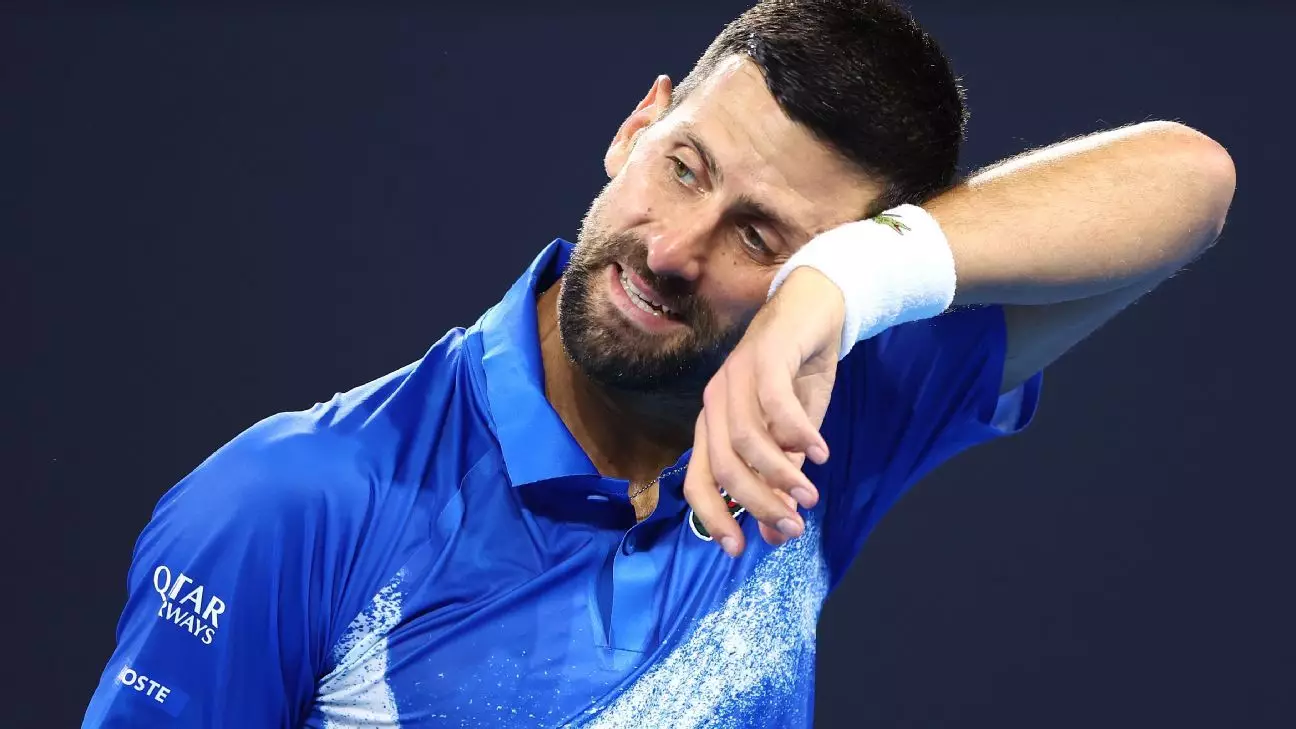In recent statements, tennis superstar Novak Djokovic has opened up about the psychological scars he carries from his experience in Melbourne during the pandemic. His journey at the Australian Open took an unprecedented turn in 2022 when he faced deportation for violating COVID-19 vaccination mandates. This incident not only barred him from competing but also thrust him into the international spotlight for all the wrong reasons. That year, he was made to stay in a detention hotel, tangled in a legal battle that overshadowed his illustrious career. This moment became a significant event, marking a challenging chapter in the history of sports amidst a global health crisis.
Despite reclaiming his title in 2023 under more favorable conditions, Djokovic candidly expressed that the emotional aftermath of his prior deportation continues to haunt him. “Every time I go through passport control and immigration in Australia, the memories resurface,” he confided to the Herald Sun. The fear of being detained once more lingers in his mind, prompting a deeper examination of how trauma can shape one’s sense of security. This reality check highlights the often-overlooked psychological impact of such experiences on elite athletes, who, despite their status, are not immune to feelings of vulnerability.
Djokovic’s remarks about his dread while awaiting validation at customs—wondering if officials would again take swift action against him—underscore the palpable anxiety that can accompany a return to a place associated with hardship. This feeling, described by him as “trauma,” demonstrates how past experiences can continue to influence present situations, casting shadows over what should be triumphs and celebrations.
However, the tennis icon is not one to dwell solely on his fears. He has shown remarkable resilience, opting to approach his tumultuous past with a positive mindset. “I don’t hold a grudge,” he stated, reflecting a maturity that is usually associated with champions who have faced adversity. This perspective is essential, as it serves as a reminder that while the past has shaped them, it does not dictate their future. The emotional victory he reclaimed during the subsequent Australian Open—given that it marked his 24th Grand Slam title—was particularly poignant, owing to the trials he endured a year earlier.
His reflections also explore the importance of support from family and team, who rallied around him during tumultuous times. It highlights the profound connection athletes often share with their loved ones, revealing how a personal support structure is crucial in overcoming challenges both in and out of the spotlight.
As the next Australian Open approaches, set to commence on January 12, Djokovic’s journey exemplifies the complexities inherent in professional sports. While he stands as the record-holder for the most men’s singles titles at the tournament, his narrative transcends mere statistics. The ongoing struggles with his mental landscape after his previous experience in Australia invites fans and observers alike to empathize with the human side of sports icons.
As the tennis world gears up for another exhilarating season, Djokovic’s story serves as a powerful reminder of resilience, adaptation, and the importance of addressing emotional scars. It poignantly encapsulates the challenges elite athletes face, encouraging a broader dialogue about mental health and the societal expectations placed upon those who continue to dazzle us with their extraordinary talents.


Leave a Reply